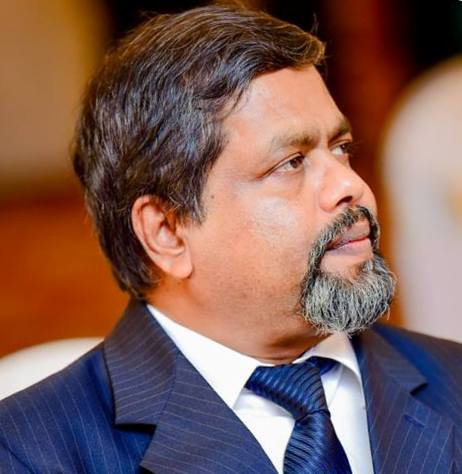
Towards excellence in research and publications By Prof. H. H. D. N. P. Opatha
 The Faculty of Management Studies and Commerce (FMSC), University of Sri Jayewardenepura (USJ) is a Centre of Excellence for Management Education in Sri Lanka.
The Faculty of Management Studies and Commerce (FMSC), University of Sri Jayewardenepura (USJ) is a Centre of Excellence for Management Education in Sri Lanka.
The FMSC which commenced offering degrees in Management Studies and Commerce in 1968, a first in Sri Lanka, developed the highest number of graduates and postgraduates in Management Studies and Commerce in Sri Lanka, the highest number of academics in the field, published the highest number of textbooks, research journals, research papers, and conference proceedings in the field in Sri Lanka, and completed the highest number of individual and collective consultancies in the field in Sri Lanka.
Today, the FMSC looks forward to becoming the prime Centre of Excellence for Business Management Education to serve the wider society, particularly in South Asia.
We educate future managers, leaders, entrepreneurs and scholars in Business Management. We are committed to prepare our students for meaningful professional, personal, and societal lives through an effective and efficient process of learning, teaching, evaluating, consulting, counseling, researching, publishing, and administration.
Aspiration
The idealized picture of the future of the FMSC or the strategic aspiration of the Faculty is “to sustain as the most highly respected University Faculty in teaching, researching, publishing and consulting in the area of Management Studies and Commerce in Sri Lanka and, to be a highly respected University Faculty in Asia.
One of the strategies adopted to realize the aspiration is to conduct an academic conference, the International Conference on Business Management (ICBM) annually.
The 14th ICBM will be held on December 8 in Colombo.
There are at least four objectives of the ICBM:
* To provide a recognized forum to both academics and practitioners for the presentation of their research findings
A majority of research paper presenters are academics and there may be a considerable number of practitioners as well. The conference is an attempt to fill, to a certain extent, the gap in availability of recognized quality Sri Lankan fora for presenting research ideas and findings by local and foreign academics.
* To institutionalize a research culture within the FMSC specifically and the University in general.
It has been possible for the Faculty to hold the Conference almost annually since 2003.
I remember the first international conference on Business Management which was held on December 12, 2003. I served as an advisor, editor and a member of the Organizing Committee. My memory goes back to an impressive keynote address delivered by Prof. Indrarathna with regard to national development, research and universities at the First Annual Research Sessions in 1998 conducted by the Faculty of Graduate Studies of the USJ.
He outlined some indicators of research of our university in 1993/1994, and it was heart-rending to hear about the inexorable decline in research capacity and standards specifically in our Faculty and our university in general. A genuine evaluation of the recent research performance of the Faculty reveals that it is at an increasing, encouraging, and appreciable level, and it is indeed promising.
I understand that research and publication productivity per academic in our Faculty has increased and has been increasing significantly. Self-motivation, appropriate competence, and right attitude of the academics and some administrative research enhancement initiatives including the scheme of annual research awards implemented very recently has contributed to this increase.
* To contribute to the generation of indigenous body of knowledge of Business Management
The proceedings of the conferences have resulted in many research papers which may be more than 500. Theoretical frameworks, syntheses, analyses, clarifications, research findings and implications of these papers will undoubtedly be useful for future researchers, students and teachers.
Practicing managers will find them useful for improving their performance individually and organizationally. The added and enhanced body of knowledge will contribute to develop locally-oriented textbooks and learning materials which will have many significant positive effects including enriching teaching practices and facilitating the acquisition of knowledge and skills by students.
* To contribute to the career development of our academics and the enhancement of their economic, social and psychological satisfaction
Research publications
According to the current promotion policy and procedures of the Sri Lankan State university system, having research publications has been made a compulsory requirement for promotions. Every academic of the Sri Lankan State University System is required to have a publication that qualifies him/her to receive a research allowance. To do a joint research and publish it needs some social or collective work and also forums provide many of the academics to interact with each other officially and informally.
To have research papers presented and published will undoubtedly increase self-esteem of the academic whose self concept will subsequently become positive.
It is possible to state that the effectiveness of a conference depends on the extent to which the four objectives of the conference have been met.
To give a further view of the degree of success of a conference of this nature, seven criteria can be utilized and they include:
(1) Quantity Factor (number of papers presented), (2) Coverage of the Contents (papers need to be presented covering almost all the areas of the discipline of Business Management), (3) Relevance (papers need to be relevant to Business Management and indeed have some value), (4) Quality Factor (the degree of conformance to generally accepted requirements or standards of making a good research paper), (5) Credibility (quality of being believable – qualifications and competencies of the researchers, validity and reliability), (6) Internationalization (foreign participation and involvement in presenting research papers), and (7) Rigour (number of research papers employing more rigorous research approaches such as experimentation, quasi-experimentation and causal-comparative (ex-post facto) design which will have the ability of supplying much information of great value in management decision making.
– The writer is a Senior Professor and Litterarum Doctor